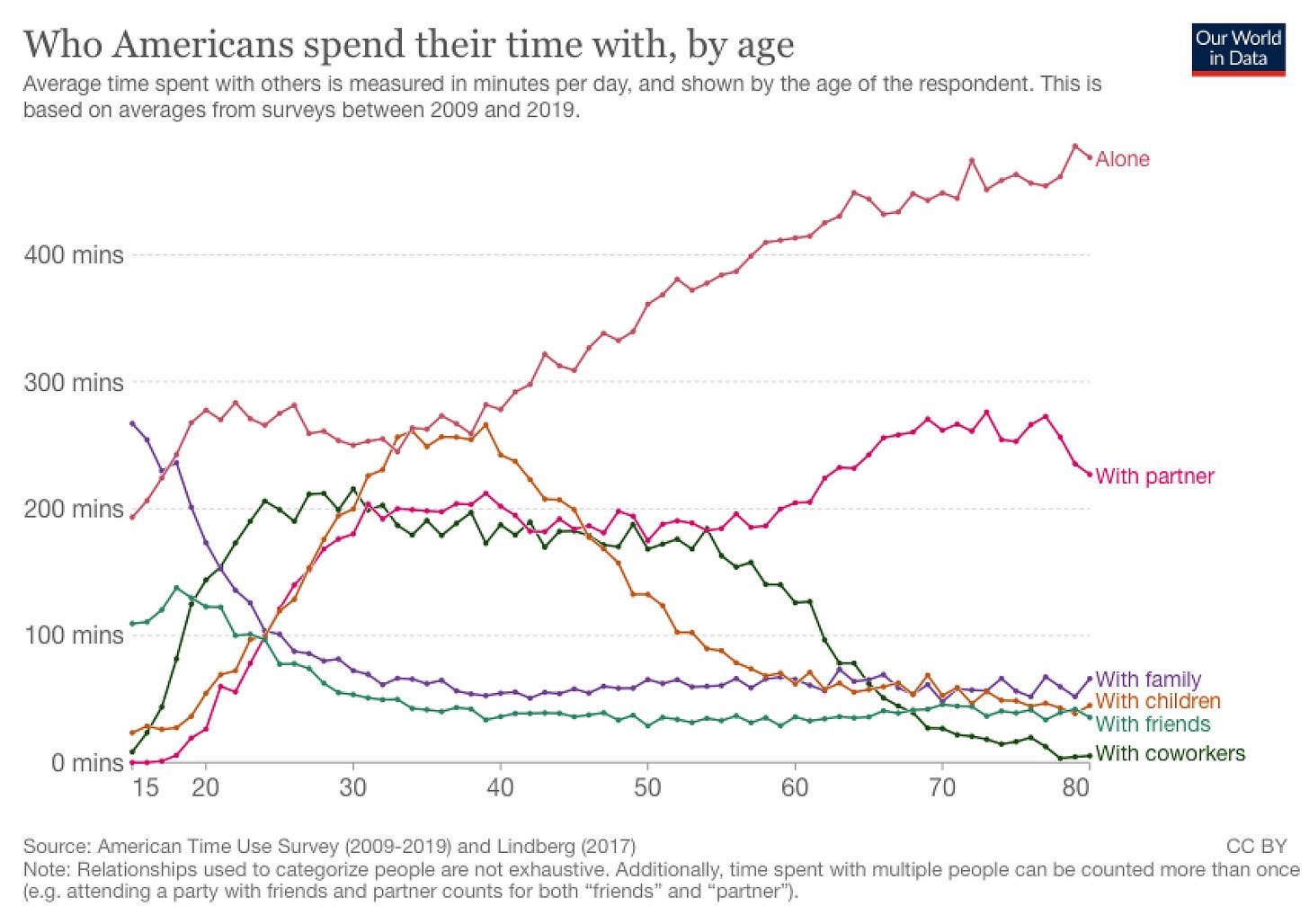This is the third and final installment of a series about finding satisfaction at work. If you haven’t already, check out my previous posts on Purpose and Autonomy.
Today we’re talking about the importance of supportive relationships at work. I want to start by telling you about my friend Anna who became a mom a year before me. We became very close as we navigated the transition to working motherhood together. We used to go on walks around campus, talking about everything from university politics to which pumping rooms were best. When I had my first miscarriage, I remember sitting in her office, while we both cried. She was a major source of support as I navigated an additional loss and subsequent infertility treatments.
Though our conversations ran the gamut, they often circled back to discussions about working motherhood. We talked a lot about our perpetual quest for work/life balance, the shifting nature of our own ambition, and our fear of facing the “motherhood penalty”. In fact, it was our conversations that, in part, inspired this newsletter. And I didn’t feel comfortable pressing push the “publish” button on my first post until she had read it and gave me me feedback.
Anna is one of handful of very dear friends I’ve been lucky to meet during my career. And I would venture to guess that each of you has some version of your own “Anna”—either from a previous job or at your current one—and that this person has helped make your work life more enjoyable.
Close friendships at work
The people we work with play a more substantial role in our lives than we may recognize. By the time we enter the working world in our early 20s, we spend significantly more time with our colleagues than we do with our non-work friends. As the graph below shows, from ages 30-55, we tend to spend approximately equal time with our colleagues than we do with our partners! It’s no wonder the quality of these relationships are a major driver of our happiness.
Research repeatedly shows that having a “best friend at work” is highly correlated with engagement, and that’s particularly true for women. In fact, “women who strongly agree they have a best friend at work are more than twice as likely to be engaged (63%) compared with the women who say otherwise (29%).” It’s also correlated with increased satisfaction, decreased retention, and greater productivity. Plus, my highly reliable anecdotal evidence proves having a friend you can covertly text during a frustrating Zoom meeting can make it just a little bit more bearable ☺️.
Mentor relationships
Work friendships with peers are crucially important, but so are mentor relationships. We are happier, and more engaged, in our jobs when we feel that someone above us cares about us and helps facilitate our professional growth.
According to the recent Surgeon General’s report on workplace mental heath and well-being, opportunities for growth are essential for satisfaction in the workplace. The report specifically identities learning and accomplishment as two essential needs:
Without learning or working towards shared goals, workers can start to feel stagnant, frustrated, and ineffective. While learning is the process of growth, accomplishment is the outcome of meeting goals and having an impact. Accomplishment confers a sense of competence that reduces stress, anxiety, and self-doubt. When organizations create more opportunities for learning, accomplishment, and growth, workers become more optimistic about their abilities and more enthusiastic about contributing to the organization.
When I reflect on my own career, I see a significant correlation between the times that I’ve had a boss who was invested in my professional and personal development and my satisfaction in the role. Additionally, I’ve found great satisfaction in the times that I’ve been able to fill this role for people who worked under me.
Relationships in a remote world
While I’m a huge proponent of hybrid and remote work, especially for working parents, this increased flexibility does present a very real challenge when it comes to building meaningful relationships. According to a recent survey, 84% of Americans said they have a harder time forming friendships virtually, and fully remote workers report having 33% fewer work friends than their in-person peers.
With that in mind, here are some suggestions for cultivating meaningful relationship in a remote world:
Be present: This can be hard when we’re in front of a screen with lots of competing priorities (glancing at your email, scrolling your phone, glancing to see whether the UPS guy is coming down the driveway), but it’s important. If your colleagues always see you as distracted, it will impact how they relate to you.
Pay attention to nonverbal cues: When we work virtually, we have significantly fewer data points about our colleagues, which is why we need to pay particular attention to the information we have. If someone seems disengaged, distracted, or “not themselves”, reach out and check in.
Make time for informal, one-on-one interactions: I know, I know… the thought of another Zoom meeting fills you with dread. I get it. But consider which relationships are most important to you and make sure you’re making time for them. If you’re fully remote/rarely in person, schedule regular check-ins (even for just 30 minutes) for quality connection with people who matter most to you.
Use in-person time wisely: As I’ve said before, it’s time to re-conceptualize how we think of the office. Instead of thinking of the physical office as “a place where work gets done”, start to think of it as “a place where relationships get nurtured”. When you go into the office, prioritize doing activities that can’t be done online like collaborative projects and informal networking (think coffee dates and lunch meetings).
Be mindful of those who may be most isolated: Members of Gen Z are the least likely generation to report that they have a meaningful friendship at work. Is there a younger employee in your office who could use your guidance and mentorship? Also think about your colleagues who are becoming parents for the first time. Is there a way to make a concerted effort to provide support in their transition to working parenthood?







My teacher friends, both in the building and out of the building, have made it possible for me to keep teaching. And my husband, who works from home, has started making it a higher priority to get together with work colleagues whenever the opportunity presents itself. He's an introvert and loves the quiet of working from home, but he also sees the value in spending an afternoon in the suite at a Colts game because it gets him around other people in the management team and keeps those work relationships alive. Work friendships matter, they really do.